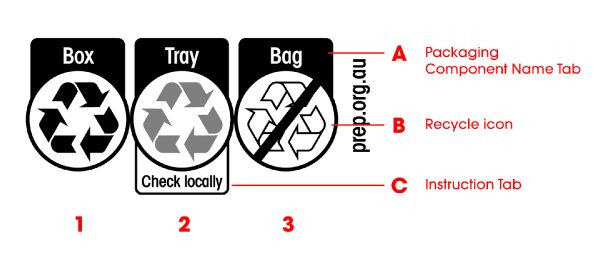A lack of clear guidance on what is recyclable at kerbside, as well as confusing labelling, can lead to a lower rate of recycling and contamination of recycling streams. But there is now an answer, Planet Ark’s environmental solutions business development manager Shaun Scallan told PKN.
A strong advocate of the online Packaging Recyclability Evaluation Portal (PREP), Shaun Scallan is passionate about boosting recycling rates. This passion is shared with Planet Ark’s partner in the PREP, GreenChip. The two organisations are behind the rollout of a new recyclability label to be launched in August, supported by the PREP tool.
According to Scallan, prior to the launch of PREP there was no way for designers to access clear, consistent and validated information about the recyclability of packaging.
“Manufacturers often left it up to consumers to make their own decision on whether an item was recyclable, or they included just one of many recycling symbols on the product and hoped for the best,” Scallan says.
“This places the business at risk of providing misleading information to consumers, which brings with it potential reputation and legal consequences.”
PREP is an online tool developed to give packaging designers nationally relevant, up-to-date and independent information on the recyclability in kerbside systems of the items they produce.
It works by combining two important pieces of information to assess the recyclability of an item. First, it looks at the material’s technical recyclability, and secondly, it examines accessibility to a kerbside collection for that material.
Designers can enter online the details of a new packaging item into PREP, including the materials, components and information about its use and disposal. The tool then generates a report, which deems the item ‘recyclable’, ‘recyclable with lost value’ or ‘not recyclable’ along with information about why it received that rating.
PREP will be the foundation for the labelling and certification scheme which will help reduce consumer confusion around what is and isn’t recyclable.
The PREP label is based on the assessment of kerbside recyclability provided by PREP – and its development has been a long time coming, according to Scallan.
A key supporter of the development of the PREP Label is retailer OfficeWorks.
“We [Officeworks] saw the need to develop a standardised PREP label with Planet Ark to simplify packaging recycling for our customers,” said Mark Ward, managing director of Officeworks.
“The leadership that OfficeWorks has provided allows us to bring to life the work on the recyclability label from a range of stakeholders including, more recently, the Australian Food & Grocery Council,” Scallan says. “This is an exciting development that allows brand owners to empower consumers to know which bin packaging goes in to maximise recovery of valuable packaging materials. If we put it in the right bin we minimise the waste of these resources.”
Planet Ark and GreenChip recently presented the PREP at three forums on Sustainable Packaging hosted by the Australian Packaging Covenant and held in Sydney, Adelaide and Melbourne, with around 140 participants from the Australian packaging supply chain. Audiences in all three cities were surveyed as to what products were recyclable, and there was a significant variation in knowledge, indicating that more definitive guidance was required, says Scallan. PREP provides this information to brand owners, packaging designers and packaging suppliers.
The first PREP labelled products will be on shelves in late July and launched by mid-August, followed by launches in other packaging sectors.
* The PREP label indicates, by component, what is recyclable at kerbside, what is conditionally recyclable and what is not recyclable. The mobius symbol is the key visual device used. The shading is used to indicate levels of recyclability.
Conditional recyclability has two potential elements. The first being the availability of local collection services. The second is the provision of behavioural actions to render the packaging recyclable e.g. rinse bottle. As time goes on the label will evolve to allow for more information like store drop off and a larger range of behavioural actions to allow the packaging to be recovered in the recycling process.






